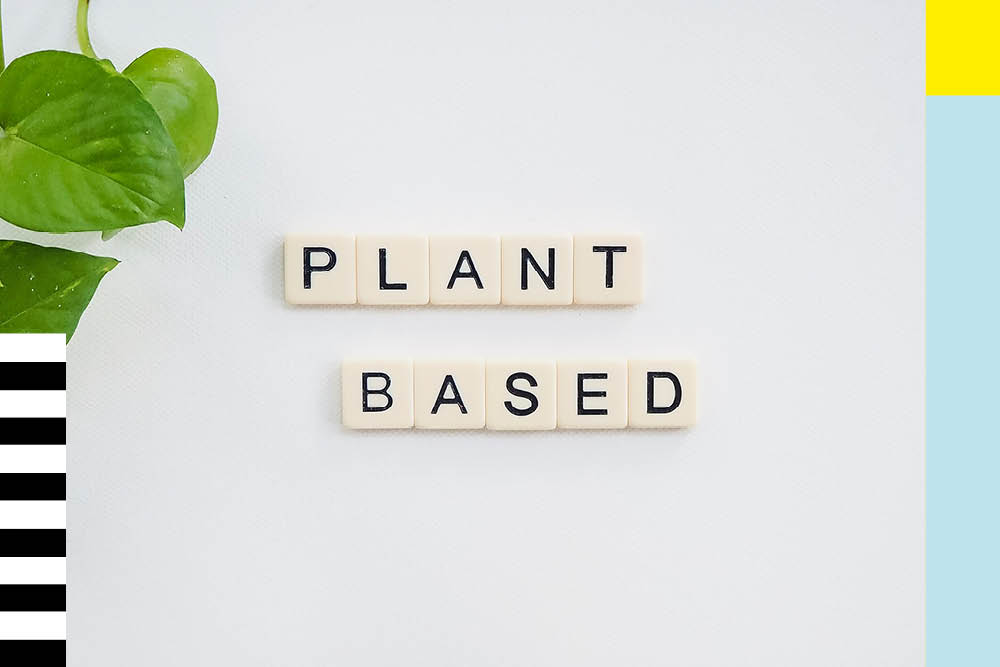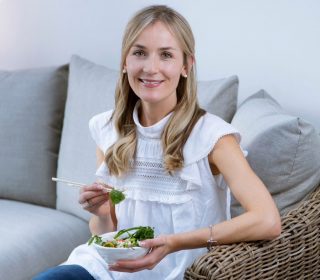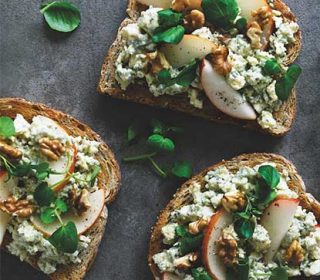Are you getting enough protein in your plant-based diet?

One of the first questions many people ask about plant-based diets is, “How do you get enough protein?” and the answer is simple – from plants. Plants are nutrient rich, high in fibre, low in saturated fat and contain protein.
But how much is enough? The RNI (reference nutrient intake) for the average UK adult is 56g/day for men and 45g/day for women. Dr Michael Gregor, cites findings from the world’s largest study, conducted in the US, on the nutrient intake of 30,000 non-vegetarians vs 25,000 individuals on plant-centric diets show that non-vegetarians get around 80g p/day of protein, which is significantly more than they need. Vegans and vegetarians get almost the same amount of protein as non-vegetarians, over 70% of what they need. Therefore, plant-based diets can provide sufficient levels of protein, in fact, much more.
PROTEIN COMBINING – FACT OR MYTH?
Perhaps, fueling this question is a long-standing belief (since the 70’s), that plant proteins are inferior to animal proteins, that they are ‘incomplete’, that one has to combine plant proteins (e.g. rice and beans), at each meal to make up for their relative shortfalls. Protein combining, as a dietary theory, believes that eating a variety of plant foods of complementary amino acid profiles is required for the body to get complete proteins, or all essential amino acids. This is in fact, a myth.
To elaborate, let’s take a step back. Proteins contain essential amino acids which mean our bodies are not able to make them, so it can only be obtained from the diet. However, all animals such as cows, pigs or chickens, do not make them either. Animals eat the plants and people eat the animals, but one could just cut out the middle-man, or middle-animal. All essential amino acids come from plants and all plant proteins have all the essential amino acids. Having said that, it is indeed true that certain plants may lack the odd essential amino acid here and there, compared to animal protein which have all essential amino acids.
So, animal protein is better then? No, and that is because our bodies are amazingly intelligent machines. The body has two processes; firstly it stores amino acid pools where all the complementing and combining is done, and secondly the body has a recycling program, where unusable proteins are broken down into their constituent building blocks (i.e. amino acids) and are reassembled to build the new proteins it needs. So, as long as one is consuming sufficient calories from whole plant foods, it is almost impossible to be protein deficient.
Comparatively, animal proteins are much higher in saturated fats than plant proteins and have been associated with higher levels of LDL cholesterol, blood pressure and chronic illnesses. Therefore, plant proteins should be the primary choice, or the more frequent choice in one’s overall diet in general.
Protein Whole Plant Foods
With any concerns about levels of protein (hopefully) put to bed, one should eat a balanced whole plant foods diet to ensure all nutrient requirements are met. As not all plant foods contain equal levels of protein, here is a wide range of good plant protein sources:
Beans & Legumes – These include lentils, chickpeas and all types of beans such as black beans, kidney beans, butter beans, pinto beans and soybeans (tofu, tempeh, soy sauce). Beans provide a good source of protein, nutrients and fibre.
Nuts & Seeds – Nuts and nut butters including cashews, walnuts, peanuts, almonds and brazil nuts. Seeds including chia seeds, hemp seeds, flax seeds, pumpkin seeds and sesame seeds. Nuts and seeds are rich in health benefiting unsaturated fats such as Omega 3 and 6.
Whole grains – Whole grains include oats, whole wheat pasta, brown bread, whole wheat wraps/pita, brown rice, quinoa, couscous and potatoes. These provide good sources of protein, starchy carbohydrates and fibre.
Vegetables – These include peas, broccoli, spinach, mushroom, artichoke, avocado, asparagus, and brussel sprouts. Although levels of protein may be lower than beans and nuts and seeds, vegetables make up a large portion of plant-based diets and therefore contribute to the overall protein intake. They are also rich in vitamins, minerals and fibre.
Non-Dairy – Plant based yoghurts, milks, cheese and creams. These are dairy-substitutes and tend to be fortified with nutrients such as vitamin B12, vitamin D and calcium.
Specialised foods – Specialised foods including plant-based protein powders, spirulina, nutritional yeast, seitan and mycoprotein such as Quorn.
The key takeaway is that there is an abundance of protein in plant foods, eat them throughout the day but there is no need to be concerned about missing amino acids. Enjoy them in a way that best suits you.









